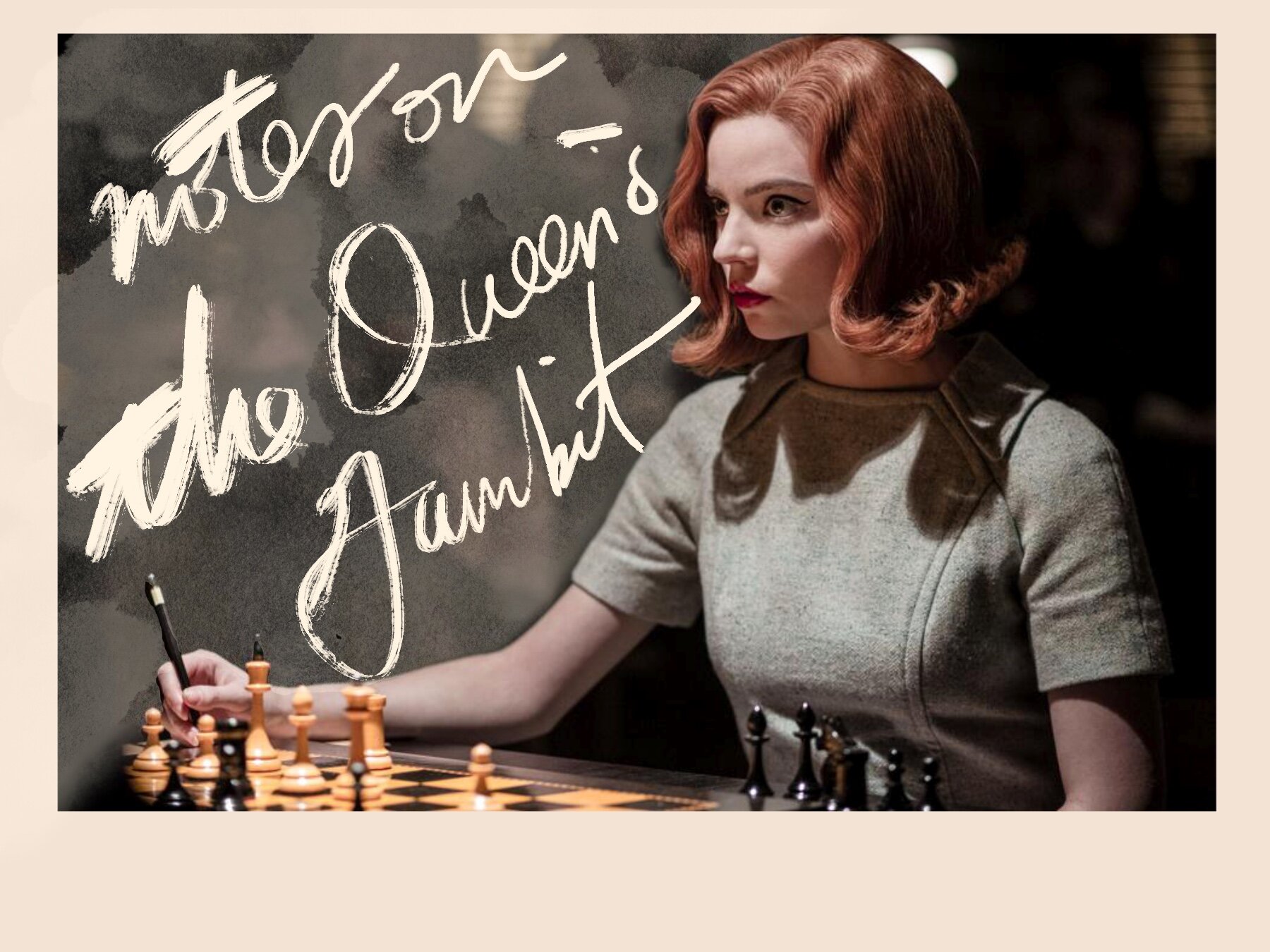notes on the queen's gambit
I rarely watch TV shows, but I started binge watching the Queen’s Gambit on new years eve, and just finished it on monday. it was: subtle and satisfying, inspiring and believable, thought provoking and pleasurable, beautiful and transportive. for me, it was the perfect balance of intensity / emotion / narrative, and lightness / pleasure.
I savored the scenes in Moscow, seen through the lens of 1968 — and the fact that her single minded focus on her obsession-passion could open up the world for her. I’m making a few brief thematic distillations on what I resonated with most — will carry with me from this show.
the primary important relationship is with the passion. she’s a girl alone in the world whose alternate reality of chess (played mostly in her head) is the thing that keeps her vital, alive, sane. life is certainly not just about chess, but it is lived through chess. chess is the singular relationship that never abandons her, even with the mothers die and the men are transient.
the other side of the gift is a curse. it’s not that being talented, creative, or brilliant requires one to suffer — but I think it comes with a heightened sensitivity to life, which means a sensitivity to pain and trauma. there is always a cost to things. light never comes without equal darkness. the question, then, is how to live through that darkness.
the obsession with winning is about survival. you take a difficult, unknown path not because it’s fun, but because there is a voice inside you which says — you must. losing, then, is not an option. in real life, wins and losses are a lot more ambiguous and nebulous than in a game of chess. but the point is that the fire within comes from necessity and truth as much as it comes from passion. otherwise, you would have chosen an easier life.
rock bottom will come first. her rock bottom (of drinking herself to oblivion) was painful to watch. the degree to which she was willing to throw it all away — to destroy what she has — makes you feel in your gut what a waste it would be. as an observer, I see her demons, and I want her to tame them. I want her to push herself to her fullest potential. this is the conversation I have with myself when I feel like shit.
self destruction isn’t necessary for brilliance. pain and suffering is inevitable, but you don’t have to inflict it on yourself. by the end of the show, her greatest win is over her own addictions — and the felt knowledge that she doesn’t need them to win at chess.
a strong woman has romance independent of, and beyond men. this is, ultimately, a story of female empowerment and self-definition in a world of men. I liked that the unrequited love story doesn’t resolve itself in the end. the main romance she has is not with any man, but with chess, and the world through chess — to Moscow, and beyond.

